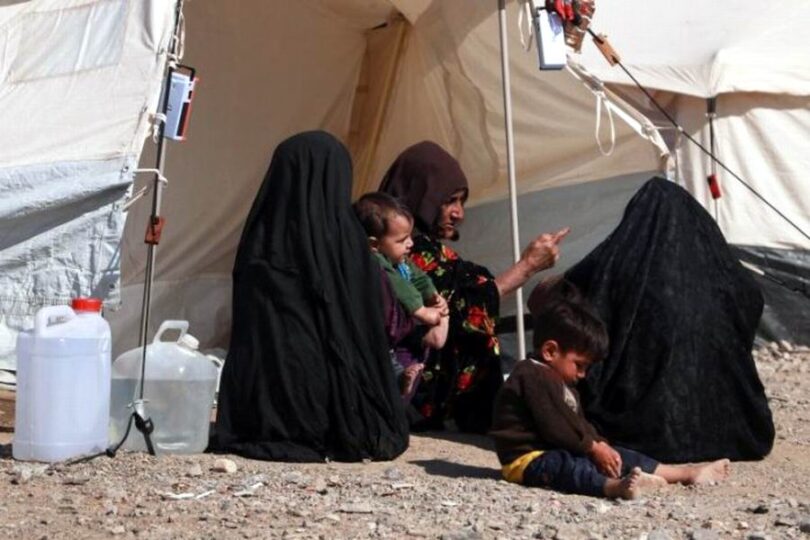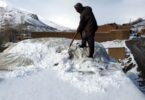HERAT (Khaama Press): Based on information from United Nations officials, international media have stated that the restrictions imposed by the de facto authorities have created challenging conditions and left the Herat tragedy victims in a dangerous and vulnerable situation.
According to a United Nations official, as reported by the Associated Press on Sunday, it has been highlighted that women without Identity Card “tazkira” and unaccompanied by a male “mahram” cannot access humanitarian assistance.
However, sources have informed Khaama Press News Agency that women affected by the earthquake in several villages were initially denied treatment by male doctors.
The UN Women’s Division also stated in its recent report that women have faced various challenges following the devastating earthquake in Herat, which claimed over a thousand lives, making it difficult for them to access humanitarian assistance.
Meanwhile, Dr. Hamida Azimi, one of the physicians at Herat Provincial Hospital who went to the earthquake-stricken areas, told Khaama Press that all of the people’s belongings, including their documents like identity cards, are buried under the rubble. She added, “When everything, including people, is buried under the debris, where can they get their tazkira? This is not fair. On top of that, some are taking advantage and receiving aid when they are not even affected.”
According to the statistics provided by UN relief agencies in Afghanistan, 90% of the earthquake victims are women and children. Some civil activists in Herat believe that the earthquake occurred when most women and children were inside their homes while men were engaged in outdoor activities.
On the other hand, a source reports that in Taliban-controlled areas, women were initially denied treatment by male doctors. According to the source, after realizing the need for medical assistance, women were sent to the hospital in Herat on the governor’s orders.
The United Nations identifies another challenge earthquake-affected women face: the shortage of female staff in relief agencies, which has hindered timely aid delivery.
It is worth mentioning that the most significant upcoming challenge for the earthquake survivors in Herat is the lack of shelter during the approaching winter. According to relief agencies, the Herat earthquake, which destroyed dozens of villages, has resulted in 1,482 casualties, while the Taliban authorities claim a death toll of 2,000.







